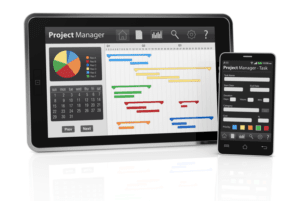Comptroller vs Controller vs. CFO

The accounting officer should make sure that their budget allocations are within the limits set by the financial officer and, if necessary, offer solutions. In order to identify potential problems before they arise, the financial officer should be aware of what the accounting officers are doing. The most common controllers are business controllers and corporate controllers, who handle entire accounting systems for their employers.
Key Differences and Comparisons
- The optional advanced degrees include an MBA with the main subject of accounting or finance.
- CAOs, in particular, are expected to partner with the CFO on strategic tasks, such as conducting “what-if” analysis for various contingencies.
- Finance director is often called the CFO’s primary accountant, which means they provide any financial information to help the CFO make decisions.
- The biggest difference between CFO, FD and Controller is their place in the corporate hierarchy.
- They use data and reports supplied by the controller to evaluate the company’s financial health and work with other executives to shape the company’s strategic direction.
- You may hear the terms bookkeeper and accountant used interchangeably, and then there are roles like controller and Chief Financial Officer (CFO).
A chief accounting officer (CAO) oversees all of the accounting departments within their company, while a controller oversees the day-to-day financial operations. While a controller focuses on reviewing financial data and individual employee performance, a chief accounting officer reviews the performance of their accounting departments as a whole. The roles of both the controller and CAO are senior leadership positions, however, as the title implies, the CAO is a business executive and a C-suite officer. The controller has leadership responsibility for managing the accounting staff, but the CFO and CAO ultimately set the tone as copilots of the finance department.
Is the controller higher than the CFO?

While CFOs and controllers aim to ensure their companies’ financial health, their approaches and leadership styles reflect their distinct roles. A CFO takes a strategic approach to financial management, payroll leading through vision and influence to drive the company toward its financial and business objectives. In addition to leading the finance department, CFOs are key figures on the organization’s executive team.
- As most of them come from the accounting stream, they usually have the CPA certification, and some have the Chartered Financial Analyst certification.
- Before your company can afford a full-time in-house Chief Financial Officer, it should obtain rate quotes for pricing and consider hiring a fractional CFO for its needed CFO services.
- CFO supervises diverse finance/accounts teams, as well as oversees the business’s overall performance.
- Furthermore, the qualifications required to become a CFO or a Treasurer are also distinct.
- This includes ensuring that the company’s financial operations run smoothly and efficiently.
Chief Financial Officer vs. Treasurer: What Are The Differences?
![]()
Outside of work, Chris loves spending time with his two young children, playing football, and exploring Ireland. More transaction volume, and different kinds of transactions, requires more oversight. They may also have a Certified Management Accountant (CMA) certification along with their Certified in Strategy and Competitive Analysis (CSCA) certificate. At KayOne Consulting, we help clients on key strategic issues, leveraging our deep industry expertise. Using our inputs backed by Outsource Invoicing research, and analytical rigor, we are able to help clients make informed decisions more quickly, and solve their toughest problems. If you want to stand out from the competition, you’ll need to upgrade your accountant resume to make it a powerful tool that showcases your skills and experience.
CFO vs Finance Director vs Controller: What’s The Difference

When businesses ask us for help, they’re often curious about chief accounting officer vs controller the services of a Chief Financial Officer (CFO). Growing businesses often need that expertise, but the level of responsibility and cost increase as you move from bookkeeper to CFO. You don’t want to wait until your business is facing a financial challenge to hire a CFO.

CFO vs Finance Director vs vs Controller

However, specific roles demand a master’s degree, professional experience with accounting, and industry-specific knowledge based on the business for which you work. Many accountants aspire to be partners at accounting firms, where they can earn hundreds of thousands of dollars. Senior-level accountancy jobs require a CPA designation and maybe even a certified management accountant (CMA), chartered financial analyst (CFA), or other professional designation. Senior financial accounting and reporting jobs might need three to six years of work experience, while tax accountants or junior auditors might only need one to three years after passing the CPA exams. For a small business without complex accounting needs, the first step is often hiring a bookkeeper to handle recording day-to-day transactions. As your business grows, you may need a Controller to handle overall financial management, financial reporting, and compliance.
Leave a Reply